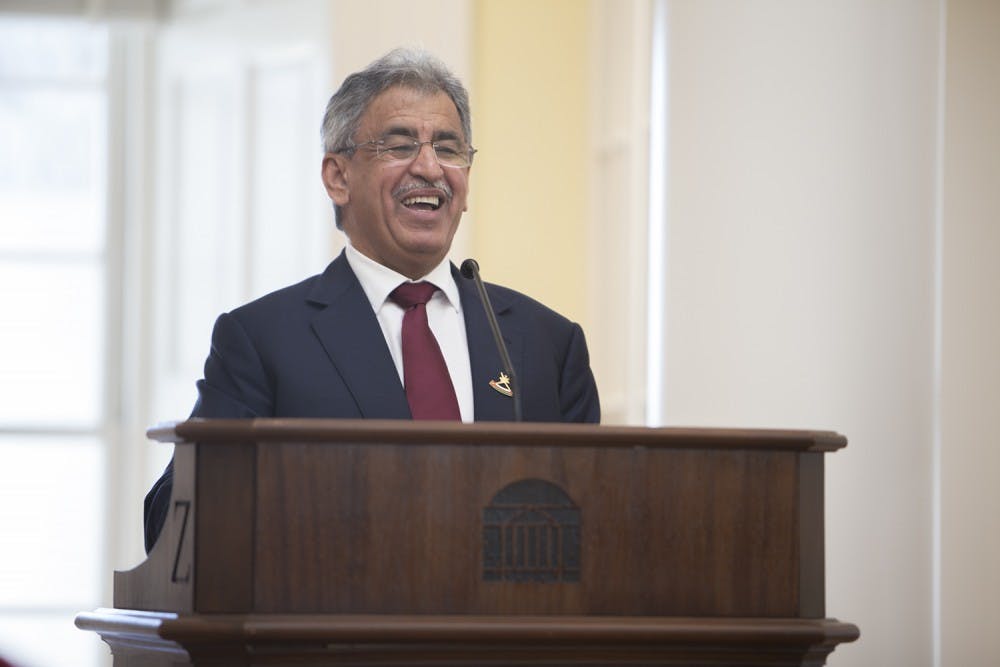The Center for Global Health and the Sultan Qaboos Cultural Center hosted a conference Wednesday that brought together University researchers and a delegation from Oman that included the Omani Minister of Health and the Omani ambassador to the United States.
SQCC is a Washington, D.C.-based organization that aims to teach Americans and Omanis about each other’s cultures.
The conference, entitled “Fostering Health Across the Lifespan: Shared Lessons and Opportunities in Oman and the U.S.,” was held in the Rotunda. University President Teresa Sullivan, Vice Provost for Global Affairs Jeffrey Legro and Her Excellency Hunaina Sultan Al Mughairy, Omani ambassador to the U.S., provided opening remarks.
His Excellency Dr. Ahmed Mohamed Obaid Al Saidi, Omani Minister of Health, gave the keynote speech, discussing the improvements that have been made since the Sultan of Oman declared free healthcare a right for all his citizens in 1970. That year, infant mortality was 180 out of every 1,000 live births — today, it is 9.5.
“[In] 1970, when His Majesty became the Sultan of Oman, our life expectancy at that time was 49 years old,” Al Saidi said. “So, I think I should not be here — I was born before 1970. If there were no changes, I’ve exceeded the life expectancy of Omanis when I was born.”
Since the Sultan declared healthcare a right, it has been provided free of charge to every citizen of Oman. However, not everyone has equal access. Most Omani people have access to primary care, but hospitals tend to be clustered in the cities.
Dr. Zahid Al Mandhari, head of the Royal Hospital’s Oncology Department in Oman, and Wendy Cohn, associate professor of public health sciences administration, both spoke about addressing the challenges posed by lack of healthcare, and specifically cancer treatment and testing in rural areas. Both talked about mobile cancer screening units that traveled around rural areas. Al Mandhari introduced the audience to Dar al Hanan — a program similar to the Ronald McDonald House, which provides living arrangements for children with cancer and their families when they have to travel for treatment. Cohn talked about using telemedicine to let patients talk to doctors without having to travel.
Dr. Felipe Sierra, director of the Division of Aging Biology at the National Institute on Aging, gave a talk on the main theme of the event — focusing on improving health throughout a person’s life.
“Aging is the major risk factor for most chronic diseases,” Sierra said. “We talk about gene-environment interaction, but with older people, it’s gene-environment-aging.”
With the exception of Sierra and the opening speakers, presenters were divided into three panels — holistic interventions that integrate cardiovascular and metabolic health, cancer prevention in rural areas and the environment’s effect on mental and physical health. Each panel consisted of three to five 20 minute presentations, followed by a question and answer period.
Dr. Rebecca Dillingham, director of the University’s Center for Global Health, provided the closing remarks.
“I think all of us have made new connections and have new ideas about future collaborations,” Dillingham said. “I think we can come together to fix [the issues discussed throughout the conference] … and put it through translation, which offers a reflexion on whether our science is truth.”







